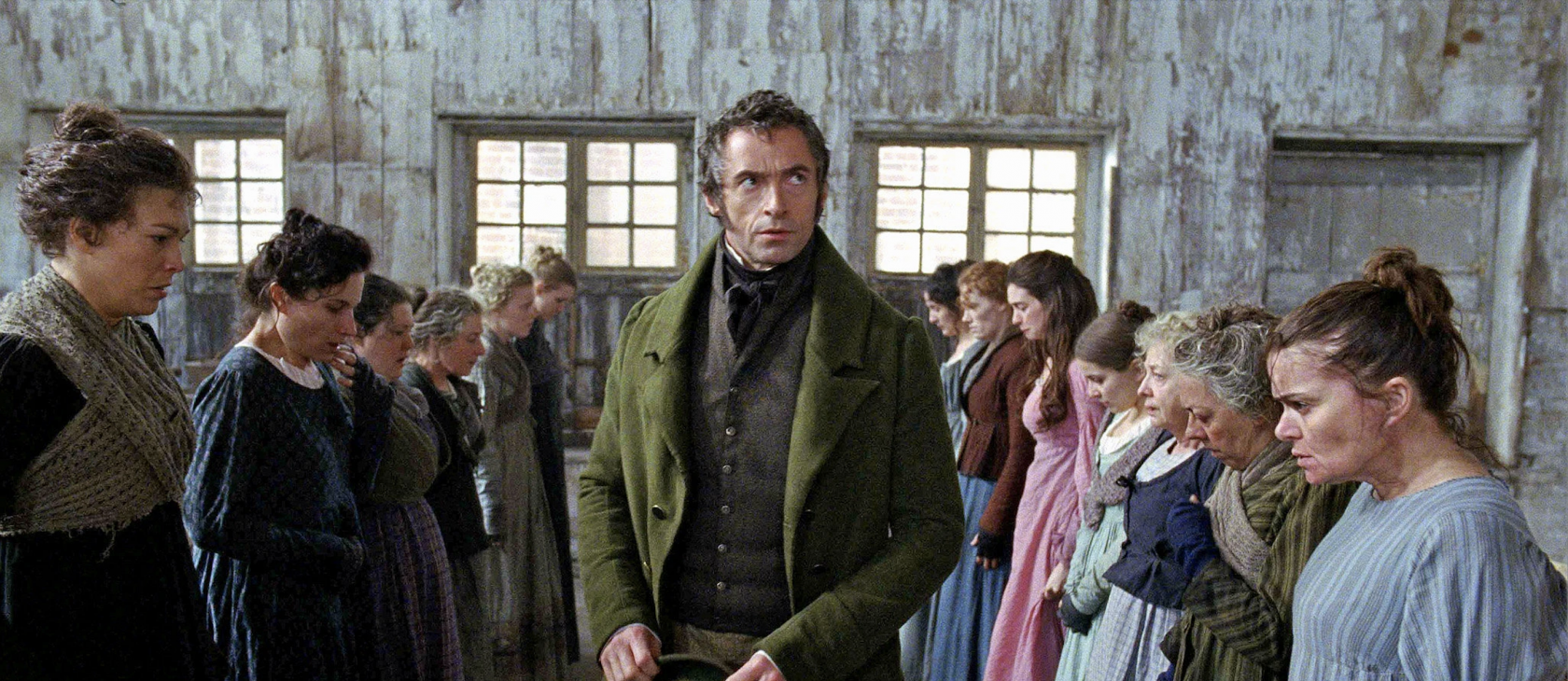The release of the film Les Misérables is a remarkable achievement, not only for its ambitious cinematic scope but also for its inspired cast and stunning dramatic and musical performances. A key driver of the ongoing popularity of the musical play over the better part of the last three decades is the source material’s deep moral and spiritual seriousness. The narrative focuses in large part on the transformation of Jean Valjean, who after 19 years of hard labor as a violent criminal is released on parole to see “what this new world” might bring. The dynamics of sin and salvation, despair and hope, rigid legalism, and the grace of the Gospel resonate with audiences, who are all able to find in this story something of themselves and their own experiences. This narrative is an exercise of the moral imagination at its finest.
There are a number of critical transitions in the plot that push the action in intriguing directions. One episode in particular is worthy of closer examination, since it illustrates what might be called the mundane morality of Les Misérables. We find that the obligations of the moral order fall equally upon all human beings; we are all, regardless of our wealth, power, or fame, moral agents responsible for our actions before God and toward others.
After his parole, Valjean faces a life dogged by his past, having been branded a violent criminal, unable to find work. As a laborer puts it, “You broke the law. It’s there for people to see. Why should you get the same as honest men like me?” Driven by the need to start over, Valjean eventually breaks his parole, and begins a new life under an assumed name, Monsieur Madeleine. Inspired by the loving example set by the bishop of Digne, whose charity made Valjean’s transformation possible, Valjean rises to prominence in Montreuil-sur-Mer, eventually becoming mayor of the town and the owner of a manufacturing enterprise.
It is at this point that Valjean’s past resurfaces, as Inspector Javert, who passionately pursues the outlaw Valjean, becomes suspicious of Monsieur Madeleine’s resemblance to the convict. His doubts are seemingly groundless, however, as another man has been rearrested as Valjean and is facing trial for his parole violation. When Valjean hears that someone else stands accused in his place, he faces a moral dilemma that functions as one of the critical turning points in the tale.
As Valjean puts it, “That stranger he has found, this man could be my chance!” All Valjean need do is “stay silent” and his past will be buried forever. But if he speaks up to correct the case of mistaken identity, the new life he has built will be destroyed and he will be forced to face the penalty for breaking his parole. There are in fact good reasons beyond mere self-preservation for Valjean to allow “this innocent who bears my face” to go “to judgment in my place.”
After all, thinks Valjean, he is in a position of some authority and responsibility now as mayor and business owner. “I am the master of hundreds of workers. They all look to me,” he thinks, “How can I abandon them? How would they live if I am not free?” Clearly Valjean’s choice will have consequences that affect others, including his workers, as well as the suffering Fantine and the soon-to-be-orphaned Cosette.
Valjean is not mistaken to consider such effects, as his obligations towards others are indeed morally relevant. The dynamics of our social responsibilities are reflected in the Christian doctrine of vocation, which sees each one of us as uniquely situated by God in a complex network of relationships with varied moral significance. As Gustaf Wingren summarized the Lutheran teaching, vocation amounts to a place of responsibility before God and toward others. “In the earthly realm man always stands in relatione, always bound to another,” writes Wingren. “From this, it is clear that every Christian occupies a multitude of offices at the same time, not just one: the same man is, for instance, father of his children, husband of his wife, master of his servants, and the office-holder in the town hall.”
It is in the varied complexity of these relationships, however, that the danger of self-justification arises. It is far too easy for us to over-emphasize the uniqueness of our responsibilities and our relationships to the extent that we minimize our objective and universal moral obligations. After all, if I am the only one who is placed as “master of hundreds of workers” and mayoral “office-holder in the town hall,” as in Valjean’s case, perhaps the fundamental moral obligation to not allow another to be unjustly punished for crimes he has not committed does not apply. Or in the case of business executives, perhaps their responsibility toward the well-being of their family, their shareholders, and their employees warrants some illicit or otherwise ethically dubious practices. Or in the case of politicians, perhaps the responsibility to their constituents means that the basic tenets of honesty and fair-dealing no longer apply.
It is precisely at this point that the mundane morality of Les Misérables shines through, as Valjean’s moral breakthrough recognizes his responsibility to come clean and “right this wrong” of mistaken identity. It is tempting to think sometimes that the basic rules of morality do not apply to us, that we are somehow above or beyond the law. But the reality is that there is no special morality for those who exercise greater responsibilities, whether in familial, economic, ecclesiastical, or political contexts. It is true that there is often in such cases greater moral complexity, but there is no dispensation for those in places of authority from mundane moral obligations. Valjean’s recognition of this fact represents one of the powerful insights of Les Misérables, and it is a lesson that ought to be recalled ever anew, especially by those tempted by the exercise of great power and authority to excuse themselves from the mundane obligations of the moral order.




